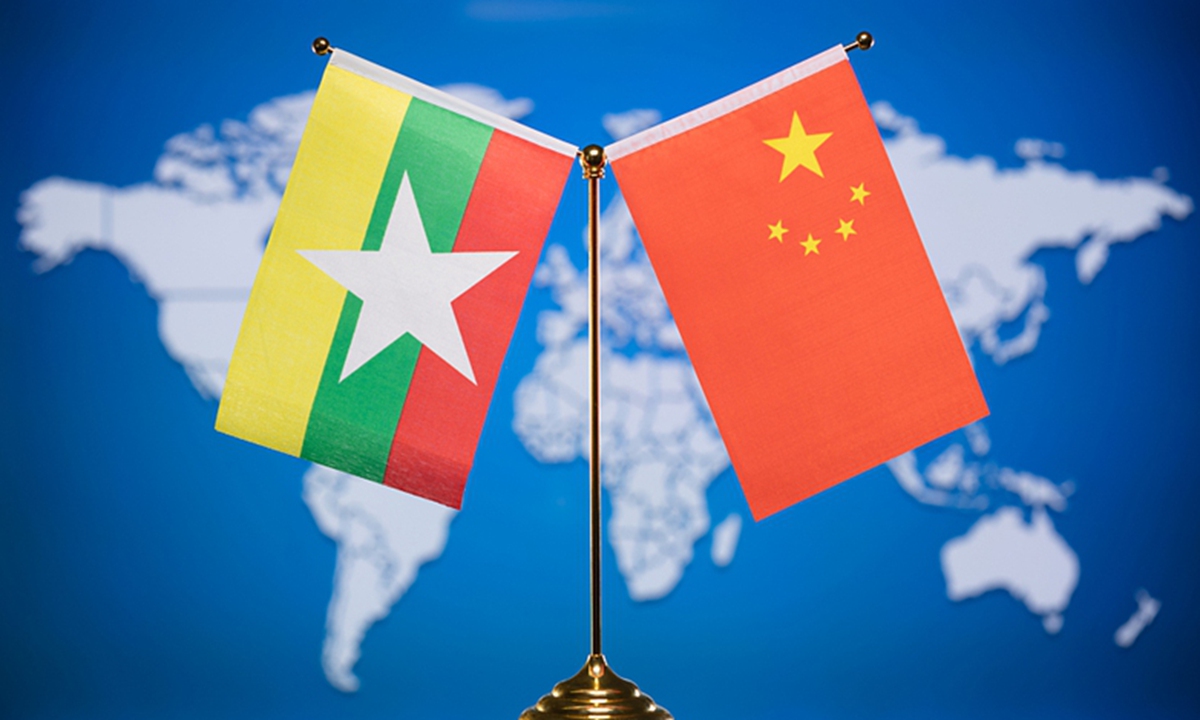
Photo:VCG
From January 4 to 6, Vice Foreign Minister Sun Weidong of China visited Myanmar, engaging in discussions with Myanmar's leadership on several critical issues, including mutual development, combating telecommunication fraud and other criminal activities. He stressed China's commitment to continuing to play a constructive role in supporting the peace process in northern Myanmar.
This visit took place at a time when both countries had made significant progress in their joint efforts to combat telecommunication fraud, a crime that has been detrimental to China-Myanmar relations. These efforts have gained support from various groups within Myanmar.
Given that China shares a border with Myanmar, it is natural for China to have concerns about peace and stability in its neighboring country, especially in the border regions. Myanmar's peace and development are of great importance to China's strategic interests.
Recent events, such as the confirmed reports by Chinese Foreign Ministry spokesperson Wang Wenbin about an artillery shell from Myanmar hitting Chinese territory on January 4 and causing injuries, serve as a reminder of past incidents in 2015. These events underscore the importance of ensuring a stable China-Myanmar border.
The complexities of Myanmar's internal affairs, interwoven with historical and contemporary factors, present a challenging landscape.
From the common challenges facing emerging economies, when a country's politics gradually transform, ethnic issues tend to become more acute and complex.
Yet, it is widely acknowledged that the key to resolving Myanmar's issues lies in the hands of its people. Stopping fighting and sitting down to engage in negotiations among all parties for national reconciliation is the only way to achieve peace.
China endeavors to facilitate a ceasefire and talks in the northern regions of Myanmar have been driven by the hope that all parties prioritize peace and stability, exercise maximum restraint and actively de-escalate tensions.
Recently, under China's active mediation and persistent efforts, parties in Myanmar convened in Kunming, China, for peace talks, resulting in a temporary ceasefire agreement. This de-escalation in the northern conflict aligns with the interests of all parties in Myanmar, as well as with those of China and other ASEAN member states.
It is necessary to emphasize that China and ASEAN share common interests and aspirations in resolving the Myanmar issue.
The "Five-Point Consensus," known as ASEAN's peace plan for Myanmar, calls for dialogue among conflicting parties, an immediate cessation of violence, the appointment of an ASEAN special envoy to facilitate mediation, the provision of humanitarian aid, and ASEAN delegations' meetings with relevant parties in Myanmar.
In promoting peace in Myanmar, China and ASEAN have a similar position. China has consistently expressed support for ASEAN countries in upholding the ASEAN approach and standing in solidarity, making a unanimous voice, and working with the Myanmar side to constructively implement the "Five-Point Consensus" in line with the principle of non-interference in internal affairs.
There is a narrative in the West that suggests China is the main beneficiary of the turmoil in Myanmar. It argues that this turmoil allows China to strengthen its presence in a country it considers a strategic gateway to the Indian Ocean and a valuable source of natural resources.
Such assertions are unfounded. In reality, it is the Western sanctions that have exacerbated divisions within the country, intensifying the stand-off between factions and causing significant hardships for the people of Myanmar.
Continued China-Myanmar cooperation is conducive to peace in Myanmar. This cooperation mitigates the impact of sanctions on the nation's socio-economic development, ultimately benefiting the people of Myanmar. This has also received support from various Myanmar factions.
China, as a major power with an increasingly active role on the global stage, will further its efforts to build a community of shared destiny in Southeast and South Asia by advancing peace in Myanmar.




